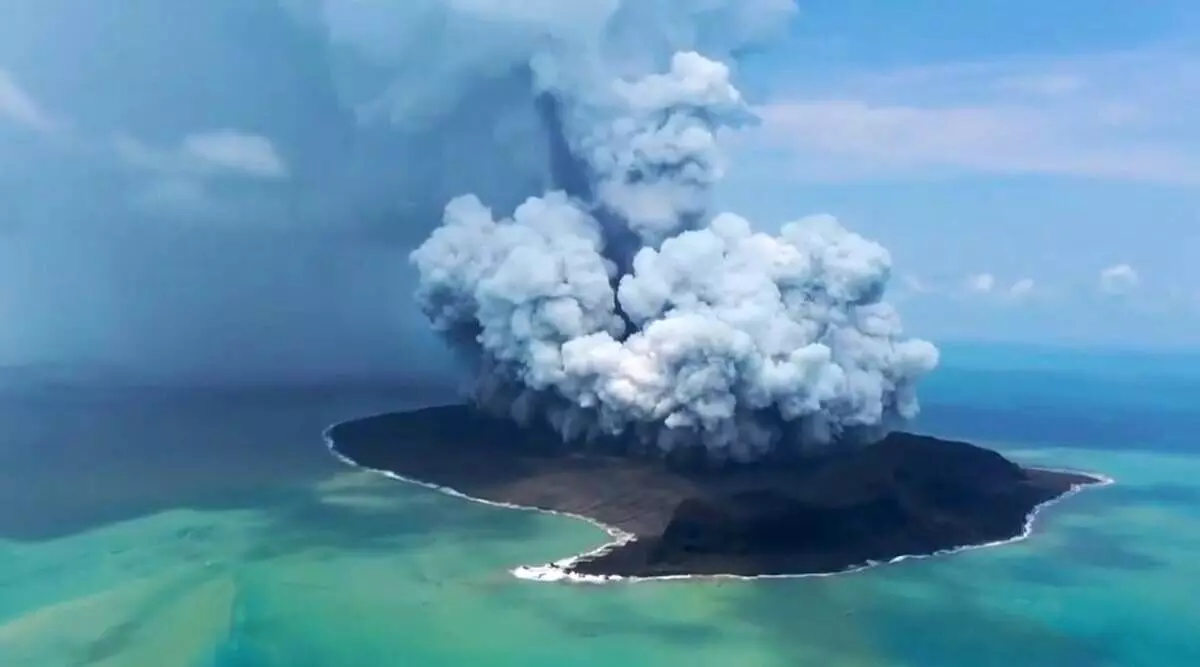
Tonga volcano eruption to play key role in climate change studies: report
text_fieldsThe Hunga Tonga-Hunga Ha'apai volcano eruption in January was a unique opportunity for scientists to study the atmosphere and make predictions about climate change.
Experts anticipate that the wave types the eruption generated will help in creating computer models for weather forecasting and climate projections. Mathew Barlow, a faculty member in UMass Lowell's Climate Change Initiative said some strong eruptions can have a cooling effect on the climate.
Tonga has a tropical rainforest climate with a distinct warm period and a cooler period. The volcano began emitting thick clouds of black ash, sulphur dioxide, and steam in the weeks leading up to the eruption.
The volcano became active on December 20, 2021, and erupted on January 15, 2022. A report in Newsweek said the blast allowed experts to study the changes in the weather and make predictions about climate patterns.
Many homes on adjacent islands were destroyed during the eruption. Experts calculated an intensity of 100,000 times the Hiroshima nuclear bomb. It also released a pressure wave that circled the Earth several times.
The first explosion created a wide range of atmospheric waves including Lamb waves moving at roughly 715 mph at surface level and in the stratosphere, and gravity waves travelling up to 600 mph in the stratosphere. This is the first time gravity waves have been observed travelling at such high speed, said a study in the journal Nature.
Barlow wrote in the report that the amount produced by Hunga Tonga does not appear sufficient for a notable climate effect.
NASA said the blast was more powerful than an atomic weapon and destroyed one of the many islands in the country. Tonga, the Polynesian country in the South Pacific, is an archipelago of 169 islands and 36 of them are inhabited.
























